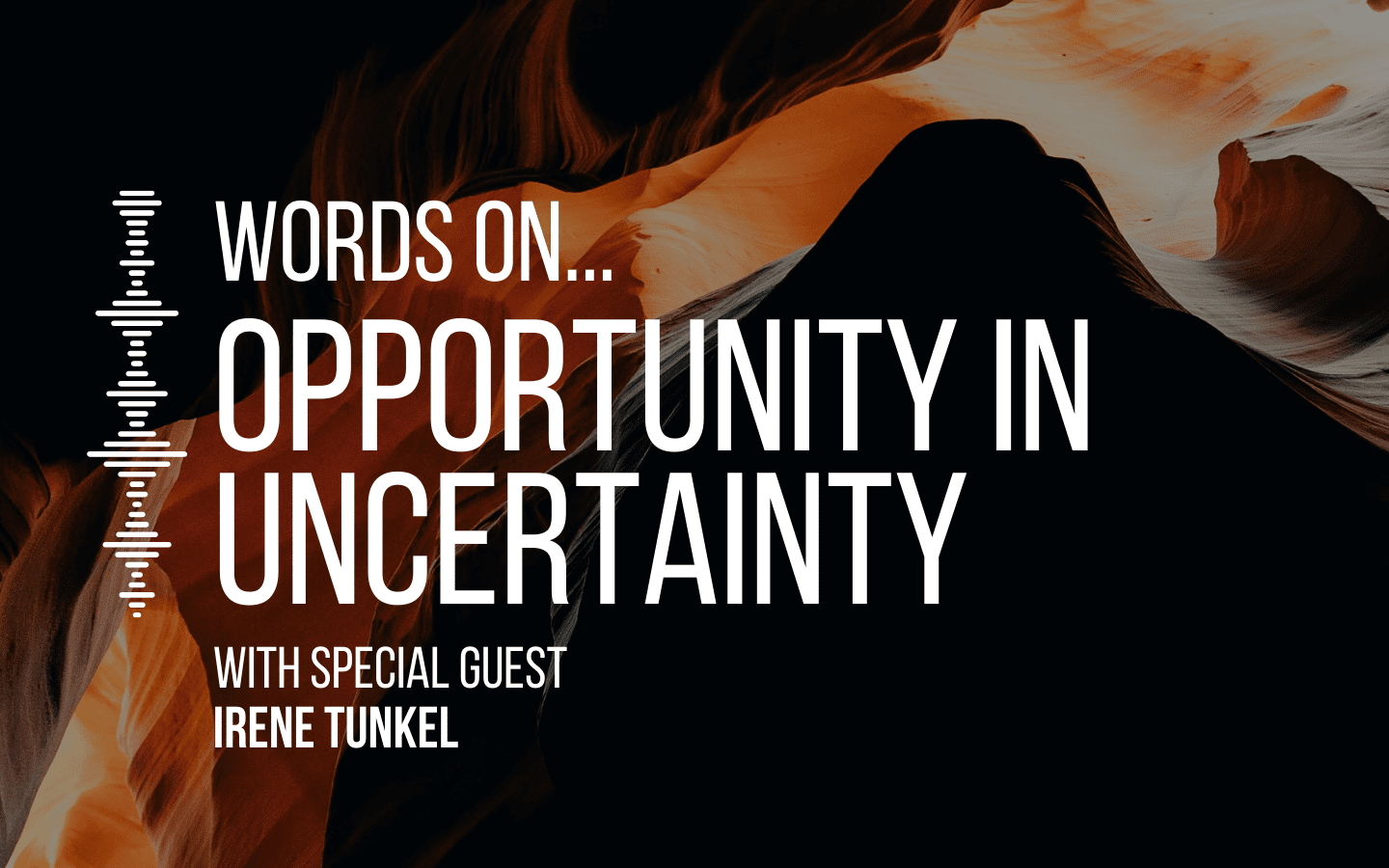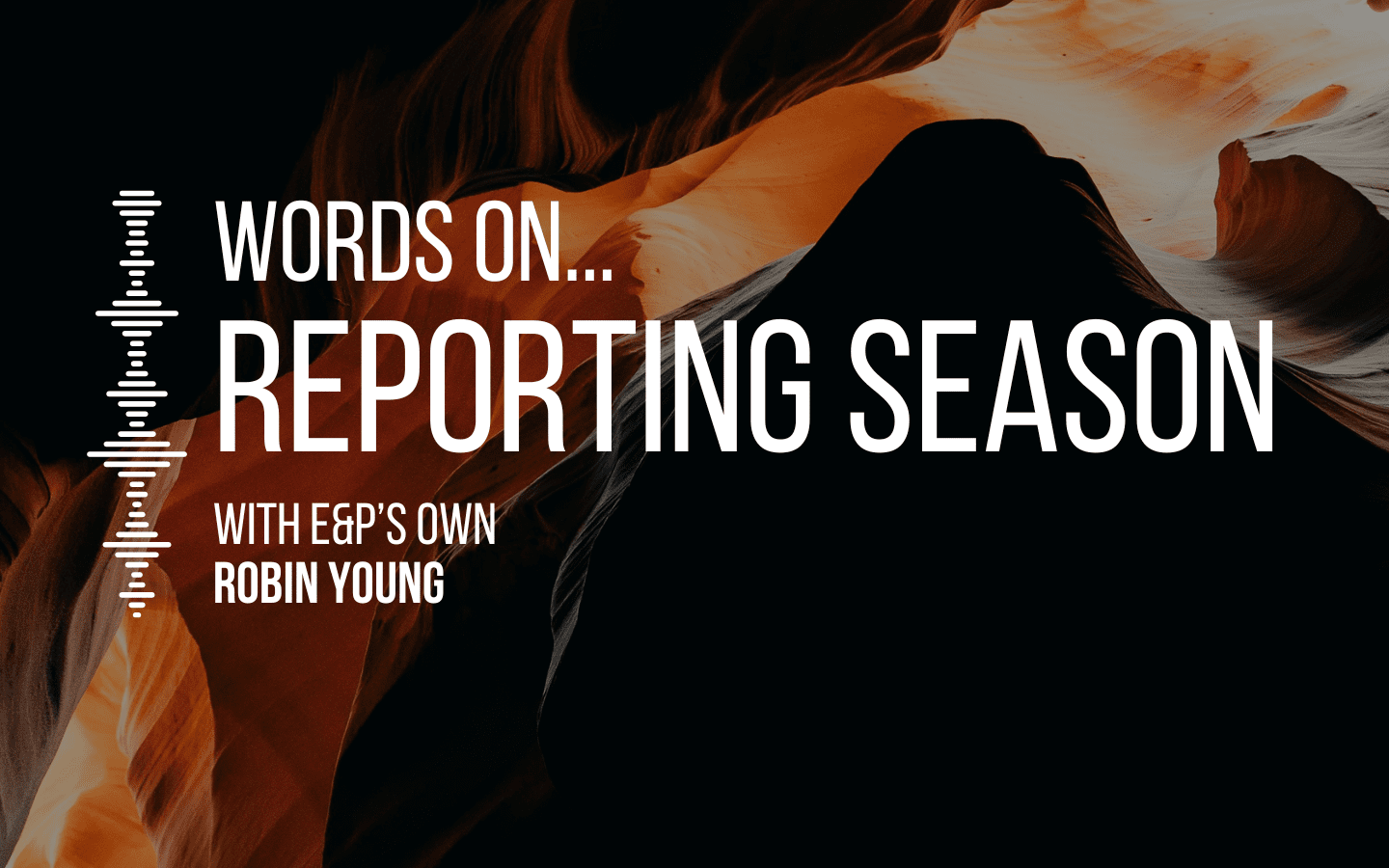


Beyond the Headlines: What is Happening in Markets
Markets are rattled, recession risks loom, and volatility is heightened — so what does this mean for investors? In this week’s episode of Words on Wealth, Senior Investment Adviser, David Hay speaks with Evans & Partners CIO Tim Rocks, to unpack the repercussions markets face from the U.S. tariff shocks, and what it all means for Australian investors. They share strategies on how to stay calm through uncertainty and remain positioned for what’s next. Tune in to find out more.
This episode is also available on Apple Podcast.
David Hay
Welcome to Words on Wealth. I’m David Hay, Senior Investment Advisor at Evans & Partners. And today I’ll be joined by our Chief Investment Officer, Tim Rocks. Markets have been very volatile over the last week or so, following on from the tariff announcements in the US given by Donald Trump. We’ll discuss growing recession risks in the US and what it means for Australian investors. We’ll also unpack the drivers from a macro perspective, the question about are there opportunities and equally as importantly, how we position to tackle what comes next for investors. Let’s get started. Tim, welcome. Thank you for your time today. Great to join you on our podcast.
Tim Rocks
Right, thanks David, good to be back.
David Hay
We had a lot going on in the last week particularly and even more in the last three or four trading days on markets globally. Why don’t we start a little bit more bigger picture and philosophically. A lot of client questions coming in from clients. We have been, as a business, highlighting that equities have been reasonably expensive for a while and we’ve talked about how portfolios should be positioned. Is it sort of, you know, if you haven’t heard that message, is it too late to make changes now or what’s your take on how portfolios should be positioned currently Tim?
Tim Rocks
Yeah, thanks David. I mean it’s important to remember that periods of volatility are a normal part of markets. We’ve had something like 30, 10 % corrections in markets over the past few decades, so they are a normal part of the investing environment. And the right way to prepare for those periods of volatility is during the bullish times is to make sure that you have diversified portfolio and also that you respect valuations of markets. After two years of 25 % returns in the US, then with valuations dragged to record highs, not that we could have predicted what happened with Trump, but we knew that if anything did go wrong, the impact on markets would be large. So it’s just a reminder of those investment fundamentals that we need to have diversified portfolios. And by that we mean equity exposure that is spread across a range of countries, not just the US, and also spread across asset classes. I’ve got some of those alternative assets that we talk about, like infrastructure or some private assets. And the attraction of those is they are more resilient in periods such as that. So anyway, that’s perhaps what we should have done. But maybe we should talk about what we do now as well.
David Hay
Just before we jump there Tim, so I’m an investor and I’ve heeded your diversification call both asset class wise and within each asset class. Is it simply a matter of sticking to my plan given the volatility we’re seeing today?
Tim Rocks
Yes, if you’ve done that, I mean the thing about a portfolio is at any point in time some assets will be doing well, some assets will be doing poorly, but overall you would have a consistent percentage return per year, whether that number is 7, 8, 9 percent, and most years you’re going to be pretty close to that. And that’s the fundamentals of investing.
David Hay
And, you know, it be a bit more difficult, but, you know, perhaps if I haven’t heeded the diversification call, how do I start from today or in coming weeks and months, frankly, we’ll get to what our thoughts on how this might all play out. But how do I sort of start the journey of being more diversified from today if I haven’t burnt him?
Tim Rocks
Yeah, well, also important to say it’s dangerous to sell after a big market fall. The biggest mistakes that investors tend to make is that they sell after a fall. And all that does is lock in the loss because there are always, we can talk about the specifics this time, but there are always self-correcting mechanisms in economies and in markets that as bad as it sort of looks now, something will change. And again, we can talk about what that is. But if you sell out of markets on the view that, okay, I’ll wait till things settle down and then I’ll buy back in, the problem is by the time things have settled down, the market is 20 % higher and you’ve missed that potential to buy back. So you’ve got to be very, very sort of careful on that. But, you know, and then, you know, I think your mindset should be, again, with that focus on valuations, is that when markets fall, I actually should be thinking about is it time to buy, not is it time to sell.
David Hay
Yeah. And Tim, in what we’re doing, hopefully advising clients through the journey, decisions, one decision to sell is hard to get right and even harder is the second decision to buy back in. So through the journey –
Tim Rocks
Yeah, exactly. If you’re selling today, you’re making two calls, you’re making a decision to sell today, but you’re making a decision about when am I going to buy again? And chances are it’s not going to be when markets are further 10 % lower, you’re going to do it when they’re higher.
David Hay
Yep. Before we get to the more economic and the more of staid things, one sort of final question there, Tim. So I’m an investor that’s, you know, has the risk appetite to potentially do some buying. You know, where do I start? Do I start at the top end? I start the more speculative? Do I populate equities? Do I populate fixed income? Now I know the answer ultimately is every client is different, but just as a bigger picture, am I starting at the big end, the small end or an asset class or is it a mix of both?
Tim Rocks
Well, the great opportunity from market sell-offs is they are indiscriminate, which means that the good stocks sell off just as hard as the bad stocks. So this is the opportunity to look through the carnage in the market and see those stocks that you missed out on and couldn’t come around to buy because they were too expensive. Now suddenly they could easily be a lot cheaper and a once in a decade opportunity to effectively upgrade your portfolio and buy good stocks. Now we’re not going to mention individual stock names on this, but I think if you chat to your advisor, they’ll be able to talk about some of those emerging opportunities.
David Hay
Yeah, no, great points. Tim, good to have a sort of a chat around those topics. Really important for every investor and to your point, everyone should stay close to their advisor and be chatting and talking through portfolio markets. Let’s try and get a little bit more specific, which is frankly, Tim, nearly impossible where the moving carnage is today. But the R word has resurfaced in the US, recession. Is that where your thoughts are today that this uncertainty, the rapid changes, the shotgun approach of changes could lead to a recession and potentially, too hard to call it now, if that is the case, how bad could it get?
Tim Rocks
Yeah, yeah. I mean, it seems reading, listening to corporate America speak on some of these TV shows that economic activity has pretty much stopped in the US at a corporate level. Firms have stopped hiring, investing, purchasing, not just because of the tariffs, but because of the uncertainty about what the new rules are. And it’s almost, the bigger problem is almost that they don’t know when it will change. even if they knew it was a bad situation, but it was gonna be permanent, they would start acting again, but for now they’re freezing. And that’s the definition of a recession. There’s no activity going on. So I think you are in recession. What we don’t know now, whether it will be a two week recession, a two month recession, a two quarter recession. So we just got to watch that very closely and that’s really in the hands of Trump or in the hands of people that could bring this to a sort of quicker conclusion. So yes, I think you are in recession. I would caution though that the most likely scenario is that it is a short one. I mean potentially sharp but a short one and that’s because deals will get done. There will be a paying threshold. There will be policy response, there will be tax cuts that will come through. So I think we will be in a different situation by the end of the year, but the short answer is, chances are we actually are in a recession.
David Hay
Yeah. And Tim, just for clarity, I don’t, probably you and I are not home watching the news at six o’clock or seven o’clock at night, but you know, the news would suggest the world ends when there’s a recession. That is not the case. The world goes on, doesn’t it? And to your earlier comments, are, you know, portfolio changes and things that you can do to reposition a portfolio during a period of recession, no matter how short or long it is. The world goes on, markets, companies react, companies change and there are opportunities.
Tim Rocks
Yeah, look, yeah, I think it’s very important not to get too bearish here. As I said, there will be a paying threshold for Trump or imposed by Congress on Trump. So that’s point one. And clearly there are going to be deals. There’s going to be deals in the next few days. don’t know who, where, but there will be deals. There will also be a broader policy response, not just in the US, but around the world. You’ve already seen that on a whole bunch of countries, so Germany for example, fiscal stimulus, China very likely to otherwise stimulate an economy. In Australia you’re going to bring forward those RBA cuts. So these things don’t happen in a vacuum and economies are full of self-correcting mechanisms that mitigate the effects. know, potentially, particularly talking about Australia, we actually think that the impacts are potentially relatively small on the Aussie market. We’re not a big exporter to the US and the small things that we do export we can probably find other markets for. But then Australia benefits in a number of other ways. We will see, as I said, that bring forward of those RBA tax cuts. We may well be a dumping ground for Chinese goods that would otherwise have gone to the US. Our cars will get cheaper, a broad range of consumer goods will get cheaper. So that could actually bring forward a better sort of consumer outlook in Oz. So this is, even if it’s bad in the US, it’s not the end of the world. And there are always opportunities created from such volatility.
David Hay
And Tim, given that US quarterly company reporting season is basically kicking off now, we are going to get to hear from some of these companies. Frankly, I think it would be fascinating what they say given the absolute uncertainty and what the scenario you’ve painted. But we are going to start to see some commentary around that. And then again, thinking in half-yearly reporting season for US companies in July, we’re going to get news flow reasonably promptly.
Tim Rocks
Yeah, so from here, our thoughts are, let’s just separate the US and let’s make a distinction between the US market from here and the Aussie market from here. So the US market from here, it is a US recession. And it is one where corporate America is really in the crosshairs. This whole tariff story is one where margins could really be under pressure. And Apple’s almost the banner company here, right? All of its goods get produced in China. It’s been too scared to say what it’s going to do on pricing, but chances are its margins will get hit. Now that’s not making a call on Apple, but it’s just an example to show that that corporate America is really in the frame. So I think it’s too early to go bargain hunting in the US market and we need to see that full reporting season, a full set of commentary from US companies to understand what that margin impact is and also to get an understanding of on the ground kind of messaging about what the consumer might be doing. So that’s the US market. But the Aussie market is different. We’ve seen, what’s the number 15, 20 % down almost with no real material change, I think, in the corporate outlook for most companies. So, Aussie companies are just cheaper. And so that’s a very different sort of outlook and a very different investor mindset we should have on the Aussie market.
David Hay
I’ll get you away from the US in a sec Tim, but just a couple of other ones. I think I did see some news suggesting Apple potentially negotiating with India for some componentry. I did see another US company announcing a pretty big buyback of their stock overnight. So there are some things happening, but again, no doubt too early to play out, but companies are, will no doubt get on the front foot in some parts of the market.
Tim Rocks
Exactly. So that’s part of the self correcting mechanism. You know, the US companies aren’t going to sit there and just cop it. They’ll be thinking of ways to get around it. And actually, that’ll that’ll happen for a whole bunch of countries and regions to tell we have the whole irony of this whole tariff situation, you know, 100 % tariff on China or whatever doesn’t really matter because they’ll just reroute through the country with the cheapest tariffs. Now in Asia, that happens to be the Philippines, because they only got a 20 % tariff and China’s going to end up with a lot more. So, you know, the biggest sale in Asia is going to be sort of made in Philippines stickers and everything will be re-read through Philippines. So this thing might not even work at all. It’s just sort of impractical. But to your point, companies will try and mitigate these effects and that ultimately will be one of the things that takes us away from a full disaster scenario.
David Hay
Yep. So again, to sort of close out, put a bow on this bit of that chat, obviously uncertain in the US around recession and where this tariff thing lands, there are some potential opportunities. In Australia, maybe less affected and therefore some opportunities there. So there are things for people to talk to their advisor about. Couple of other things, Aussie dollar, Tim. Now, I mean, if you’ve had unhedged internationally in your portfolio, the Aussie dollar has compensated you by dropping to below 60 cents while some of the equities have gone down depending on where you’re placed. Not so much does the Aussie dollar bounce. It’s even harder to predict than equities. what do you do from here? If I am putting some new money to work, does it have to be hedged? And if I’ve got some international unhedged to the US dollar or international currencies, do I start to think about hedging now?
Tim Rocks
Yeah, so I think the call is when it’s time to start really buying the US, you want to do it on a hedged basis. This is exactly what happened in the COVID period, that initially the big fall in markets, you were cushioned if you were held unhedged. But then the right call is during the buyback, during the bounce back, you wanted to buy hedged because the Aussie dollar was going to rise as markets rose. So you didn’t want to dilute that impact by the currency kind effectively working against you. So the call from here is, you know, when we ring that bell hazy just to say buy the US again, you’d want to buy on a hedged basis, because chances are, from whatever low point the Aussie starts at, it’ll rise from that point.
David Hay
Yep. Yep.
Tim Rocks
And there’s this whole other kind of story going on as well, which is there’s this theory out there that this whole tariff scenario is all about pushing the US dollar down so that the Trump administration and particularly Scott, the Treasury secretary want the US dollar to be 10 or 20 % lower. So if that is their plan over the next two to three years, that’s a scenario where the Aussie dollar could easily be well into the 70s at some point once the world is normalised again.
David Hay
Yeah. And Tim, I think earlier on we touched on sort of the alternative asset space and the diversity benefits there. Probably one though that’s a bit more mainstream. You touched on interest rates in Australia, the income securities fixed income part of the market, a parking spot or a place of safety for investors through this period of time. And when I say parking spot, it’s a parking spot until we make the call that we need to go and reinvest on it a more positive and firm footing. Happy to be still positioning portfolios in that jurisdiction and in markets.
Tim Rocks
Yeah, I mean, I think Aussie credit’s okay. US credit’s got a bit complicated, this recession, you’d need to worry about corporate health, but Aussie credit’s pretty good. You know, can generally get six and a half, seven percent on high grade Aussie credit, either directly or through hybrids. You know, if you’re not sleeping well at night, plus you don’t like the equity volatility, that’s not a bad place to say, I’m gonna accept that type of return and then come back when the world’s normal again. But we think though that part of the market is still pretty good. And then also within the alt space, you know, we really like infrastructure. We’ve liked unlisted infrastructure for a long time and that tends to lock in eight, nine percent per year, every year. And gold is another asset that does that. So they’re the other assets that we think always look good. And, you know, they haven’t really been affected by these swings in valuation as much so it’s not too late to buy those either.
David Hay
Yep. We’ve covered a lot today, Tim. Really appreciate your insight and comments. Is it, I won’t use the absolute term, but keep calm, keep close to your advisor and despite everything we’re seeing in the press and on the news and on social media, wherever it might be, keep calm and see this period through, potentially look to upgrade the positions in your portfolio with, as you say, you know, sectors or parts of the market that are lot cheaper than they have been for some time.
Tim Rocks
Yeah, that’s right. Always good advice to ignore the news. News love to make these things seem more extreme than they are. But you’re right, having a sensible approach to your investments, looking for opportunities, looking to upgrade, keeping close to your advisor. I think they’re all very sound things to do.
David Hay
Thank you, Tim. We’ll see you next time. Thanks to the listeners also. Cheers.
Tim Rocks
Great, thanks David, bye.
Tags
Disclaimer
This podcast was prepared by Evans and Partners Pty Limited AFSL 318075.
Any advice is general advice only and was prepared without taking into account your objectives, financial situation or needs. Before acting on any advice, you should consider whether the advice is appropriate to you. Seeking professional personal advice is always highly recommended. Where this presentation refers to a particular financial product, you should obtain a copy of the relevant PDS, TMD or offer document before making any investment decisions. Past performance is not a reliable indicator of future performance.
Directors, employees and officers of Evans and Partners and its related bodies corporate may have holdings in the securities discussed. Any taxation information is general and should only be used as a guide.
This communication is not intended to be a research report (as defined in ASIC Regulatory Guides 79 and 264). Any express or implicit opinion or recommendation about a named or readily identifiable investment product is merely a restatement, summary or extract of another research report that has already been broadly distributed.


